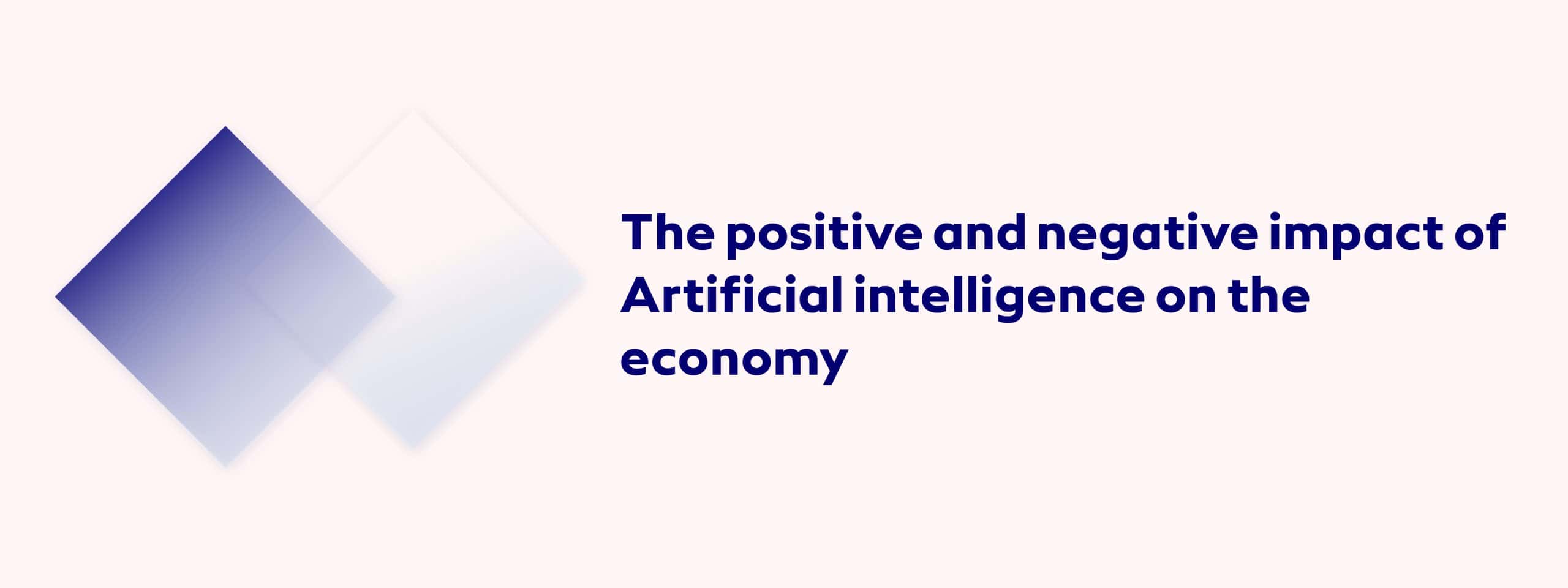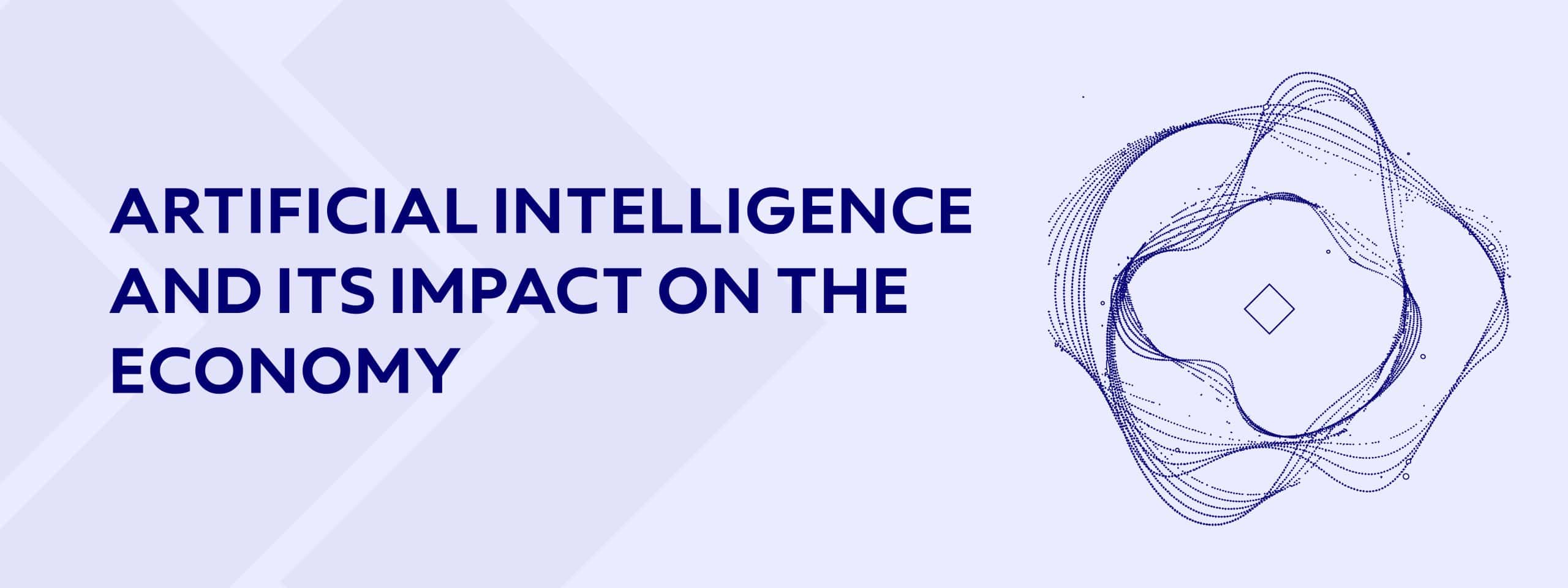
How much are you exposed to using AI every day?
Artificial intelligence is not new in our world, because man always seeks to facilitate access to his needs with minimal effort, for example, automated response to messages, voice search through your mobile phone, robotics and drones are all applications of artificial intelligence with the aim of achieving different needs in the easiest possible way.
But what has been raised recently is the impact of AI on the economy and the workforce, as it has emerged from a tremendous development of technologies, which has raised the fears of some of it and aroused the curiosity of others about it.
Like every novelty in our world, AI is a double-edged sword, with many great advantages and many disadvantages that you have to pay close attention to in order to be able to get the most out of it.
Artificial intelligence is breaking into the economy
PwC studies predicted that it will be a potential contributor of $15.7 trillion to the global economy by 2030, accounting for 45% of total economic gains from product improvement and stimulating consumer demand, as AI is expected to drive greater product diversity while reducing costs.

AI is expected to make a big difference in industry, medical care, logistics, retail and other areas where it will make a tremendous development in production, economic growth and expansion.
The positive impact of artificial intelligence on the economy
Raising productivity and promoting economic growth:
The primary purpose of the emergence of artificial intelligence is to significantly improve productivity, so as to significantly increase economic growth.
One of the most important criteria that distinguish AI is to reduce physical exertion on human labor, simplify complex work and improve quality standards.
AI is also complementary to the existing workforce to save time and improve quality.
AI not only changes behavioral habits but also dramatically changes the way of thinking, helping technological progress, innovation and economic development in all industries.
Creating more jobs
One of the most important features of the industrial revolution is the replacement of manpower by machines and the reduction of labor costs, and this has a negative impact on employment because it results in reducing employment, but on the positive side, technological progress and its application can create new industries and new sectors, and thus more job opportunities.
History shows that technological progress throughout the ages, despite fears of its negative impact on employment, has always proved the opposite, creating new fields and helping innovation, in addition to saving effort on the labor force while increasing productivity significantly.
Raising the efficiency of the organizational structure in institutions
The shift from making decisions based on personal opinions to intelligent, impartial analytics to assess productivity and progress rates ignores the organizational structure in more efficient organizations.
It also gives organizations more accurate and detailed information about the team, opportunities that can be exploited, weaknesses and strengths, and helps provide appropriate training to suit business needs.
It also helps the employee to know his true value and how to invest in himself impartially and develop himself.
Thus, the end result is the union of the organization and the work team to improve the job performance of individuals and thus improve work and productivity.
The negative impact of artificial intelligence on the economy
High unemployment rates
Artificial intelligence is characterized by its permanent ability to improve itself, track its defects and problems, and work on them to reach the best results, and according to the results of some institutions, artificial intelligence has replaced humans in many jobs.
This is because compared to AI productivity, humans are not enough producers, and for organizations, AI provides more economical solutions, which can cause about 50% of the workforce to be affected by the use of AI by companies and organizations.
Increased income inequality
Many organizations seek to replace human energy with modern machines and technologies, which in turn not only increases the chances of unemployment, but employees are exposed to lower wages due to the low demand for human labor in their fields.
Also, artificial intelligence technologies can only cost large companies, so the employee has no place among this huge amount of technology, and therefore has only smaller and less financial institutions that cannot afford to pay him a good salary.
Threat to national security
Man transfers all his expertise, experiences and wisdom to artificial intelligence, and gives him the ability to develop himself, which means that artificial intelligence has the ability to surpass the capabilities of humans.
Thus, if used negatively, it will affect the various industries that form the basis of life for humans, such as the food and pharmaceutical industries, and they are also capable of posing a military threat that may enable them to develop to the point of accessing military secrets in ways that humans cannot comprehend.

Rushing to use Artificial intelligence technologies without taking into account the risks, or making the decision to dispense with them without considering the advantages means a great loss and many missed opportunities in both cases, so there are a number of steps to use AI technologies wisely:
- Identify all business needs.
- Find AI tools and learn about the importance of each.
- Identify useful tools for your business.
- Research on its advantages, disadvantages and risks behind it.
- Ensure that the cost is appropriate to the actual budget.
- Provide a trained and skilled team to subject the AI to specific business needs.
- Always measure the performance of AI tools on the job.
- Compare the results of the previous results of the same team.
- Dispense with tools that cause loss of time, effort or money and replace them with better tools or sufficiency with human energy.
AHG is a leading regional auditing and chartered accountancy firm, with presence in the GCC and North Africa. Since 2014, AHG has helped companies operating in the UAE achieve maximum success. We are fully prepared for establishing companies in the United Arab Emirates with a team of trained tax experts to prepare your business for corporate tax in the United Arab Emirates.
The AHG-Dubai Group serves a wide range of clients and multinational corporations. This comes in light of the company’s strategy to focus on two main pillars: geographical expansion in frontier markets and driving a positive societal culture. By combining our strengths and expertise in the region, we provide our clients with best-in-class services tailored to their needs to maximize their investment goals in a rapidly changing environment.

